

OTHER BOOKS IN
THE AMERICAN ANTIQUARIAN SOCIETY
COOKBOOK COLLECTION
1776-1876: The Centennial Cook Book and General Guide, by Mrs. Ella E. Myers
American Cookery, by Amelia Simmons
The American Family Keepsake, by The Good Samaritan
Apician Morsels, by Dick Humelbergius Secundus
The Art of Dining, and the Art of Attaining High Health, by Thomas Walker
California Recipe Book, by Ladies of California
The Canadian Housewifes Manual of Cookery
Canoe and Camp Cookery, by Seneca
The Compleat Housewife, by Eliza Smith
Confederate Receipt Book
The Cook Not Mad
The Cook's Own Book, and Housekeeper's Register, by Mrs. N.K.M. Lee
Cottage Economy, by William Cobbett
Dainty Dishes, by Lady Harriet E. St. Clair
Dairying Exemplified, by Josiah Twamley
De Witt's Connecticut Cook Book, and Housekeeper's Assistant, by Mrs. N. Orr
Every Lady's Cook Book, Mrs. T.J. Crowen
Fifteen Cent Dinners for Families of Six, by Juliet Corson
The Frugal Housewife, by Susannah Carter
The Hand-Book of Carving
The Health Reformer's Cookbook, by Lucretia E. Jackson
The Housekeeper's Manual
How to Mix Drinks, by Jerry Thomas
Jewish Cookery Book, by Esther Levy
Miss Leslies New Cookery Book, by Eliza Leslie
Modern Domestic Cookery, and Useful Receipt Book by W.A. Henderson
Mrs. Hale's New Cook Book, by Sarah J. Hale
Mrs. Owens Illinois Cook Book, by Mrs. T.J.V. Owens
Mrs. Porters New Southern Cookery Book, by Mrs. M.E. Porter
The New England Cook Book
The New Housekeeper's Manual, by Catharine E. Beecher and Harriet B. Stowe
The Physiology of Taste, by Jean A. Brillat-Savarin
Seventy-Five Receipts for Pastry, Cakes, and Sweetmeats, by Eliza Leslie
The Times Recipes, by The New York Times
A Treatise on Bread, by Sylvester Graham
Vegetable Diet, by William Alcott
The Virginia Housewife, by Mary Randolph
What to Do with the Cold Mutton
The Young Housekeeper, by William Alcott

This edition of The Practical Distiller by John Wyeth was reproduced by permission from the volume in the collection of the American Antiquarian Society (AAS), Worcester, Massachusetts. Founded in 1812 by Isaiah Thomas, a Revolutionary War patriot and successful printer and publisher, the Society is a research library documenting the life of Americans from the colonial era through 1876. AAS aims to collect, preserve, and make available as complete a record as possible of the printed materials from the early American experience. The cookbook collection includes approximately 1,100 volumes.
The Practical Distiller copyright 2013 by American Antiquarian Society. All rights reserved. No part of this book may be used or reproduced in any manner whatsoever without written permission except in the case of reprints in the context of reviews.
Andrews McMeel Publishing, LLC
an Andrews McMeel Universal company
1130 Walnut Street, Kansas City, Missouri 64106
www.andrewsmcmeel.com
ISBN: 9781449428723
ATTENTION: SCHOOLS AND BUSINESSES
Andrews McMeel books are available at quantity discounts with bulk purchase for educational, business, or sales promotional use. For information, please e-mail the Andrews McMeel Publishing Special Sales Department:
specialsales@amuniversal.com
DISTRICT OF PENNSYLVANIA,
TO WIT:
 BE IT REMEMBERED, That on the twenty fourth day of November, in the thirty-third year of the independence of the United States of America, A. D. 1808, S AMUEL MH ARRY , of the said district, hath deposited in this Office, the title of a Book, the right whereof he claims as author, in the words following, to wit:
BE IT REMEMBERED, That on the twenty fourth day of November, in the thirty-third year of the independence of the United States of America, A. D. 1808, S AMUEL MH ARRY , of the said district, hath deposited in this Office, the title of a Book, the right whereof he claims as author, in the words following, to wit:
The Practical Distiller: or an introduction to making Whiskey, Gin, Brandy, Spirits, &c. &c. of better quality, and in larger quantities than produced by the present mode of distilling, from the product of the United States: such as Rye, Corn, Buckwheat, Apples, Peaches, Potatoes, Pumpions and Turnips. With directions how to conduct and improve the practical part of distilling in all its branches. Together with directions for purifying, clearing and colouring Whiskey, making Spirits similar to French Brandy, &c. from the Spirits of Rye, Corn, Apples, Potatoes &c. &c. and sundry extracts of approved receipts for making Cider, domestic Wines, and Beer. By S AMUEL MH ARRY , of Lancaster county, Pennsylvania.
In conformity to the act of the Congress of the United States, intituled, An act for the encouragement of Learning, by securing the copies of Maps, Charts, and Books, to the Authors and proprietors of such copies during the times therein mentioned, And also to the act, entitled An act supplementary to an act, entitled, An act for the encouragement of Learning, by securing the copies of Maps, Charts, and Books, to the authors and proprietors of such copies during the time therein mentioned, and extending the benefits thereof to the arts of designing, engraving, and etching historical and other prints.
D. CALDWELL,
Clerk of the district of Pennsylvania,
CONTENTS:
PREFACE.
W HEN I first entered on the business of Distilling, I was totally unacquainted with it. I was even for ignorant of the process, as not to know that fermentation was necessary, in producing spirits from grain. I had no idea that fire being put under a still, which, when hot enough, would raise a vapour; or that vapour when raised, could be condensed by a worm or tube passing through water into a liquid state. In short, my impressions were, that chopt-rye mixed with water in a hogshead, and let stand for two or three days, and then put into a still, and fire being put under her, would produce the spirit by boiling up into the worm, and to pass through the water in order to cool it, and render it palatable for immediate useand was certain the whole art and mystery could be learned in two or three weeks, or months at farthest, as I had frequently met with persons who professed a knowledge of the business, which they had acquired in two or three months, and tho those men were esteemed distillers, and in possession of all the necessary art, in this very abstruse science; I soon found them to be ignorant blockheads, without natural genius, and often, without principle.
Thus benighted, and with only the above light and knowledge, I entered into the dark, mysterious and abstruse science of distilling, a business professed to be perfectly understood by many, but in fact not sufficiently understood by any. For it presents a field for the learned, and man of science, for contemplationthat by a judicious and systematic appropriation and exercise of certain elements, valuable and salutary spirits and beverages may be produced in great perfection, and at a small expence, and little inconvenience, on almost every farm in our country.
Next page
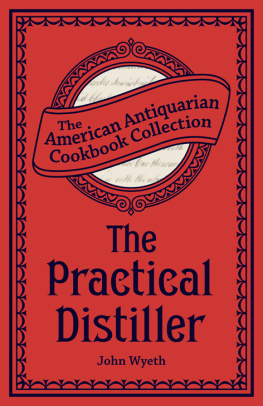
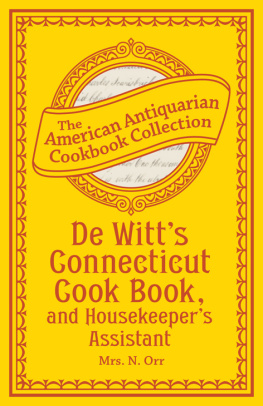
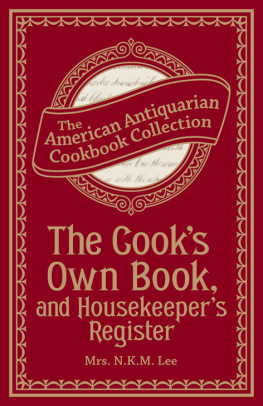
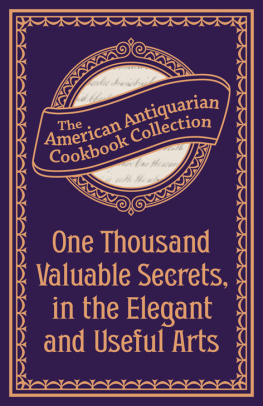

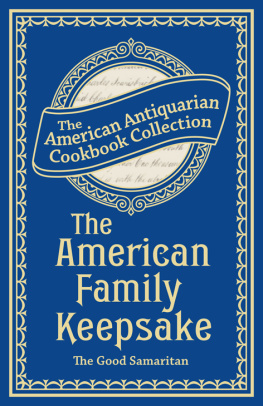
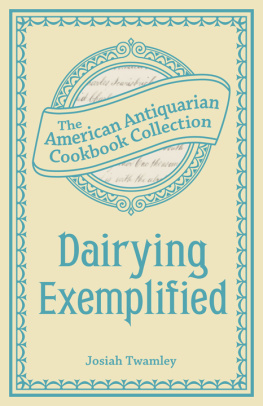
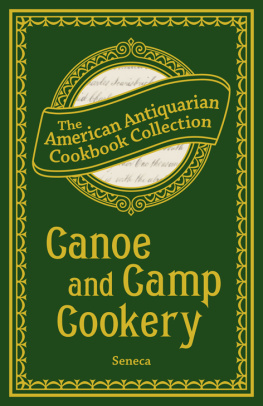
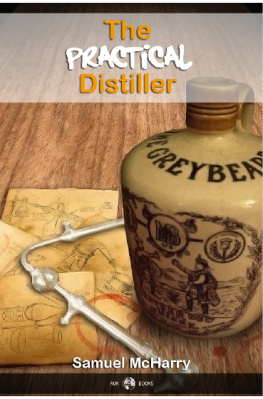
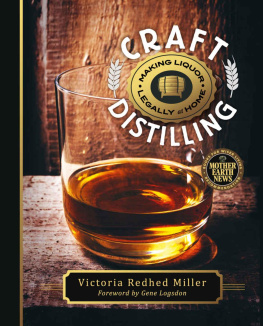
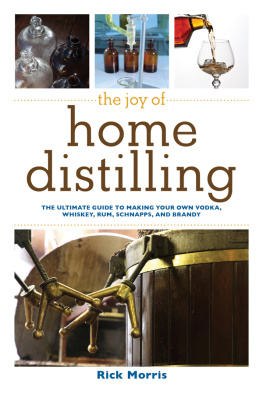



 BE IT REMEMBERED, That on the twenty fourth day of November, in the thirty-third year of the independence of the United States of America, A. D. 1808, S AMUEL MH ARRY , of the said district, hath deposited in this Office, the title of a Book, the right whereof he claims as author, in the words following, to wit:
BE IT REMEMBERED, That on the twenty fourth day of November, in the thirty-third year of the independence of the United States of America, A. D. 1808, S AMUEL MH ARRY , of the said district, hath deposited in this Office, the title of a Book, the right whereof he claims as author, in the words following, to wit: